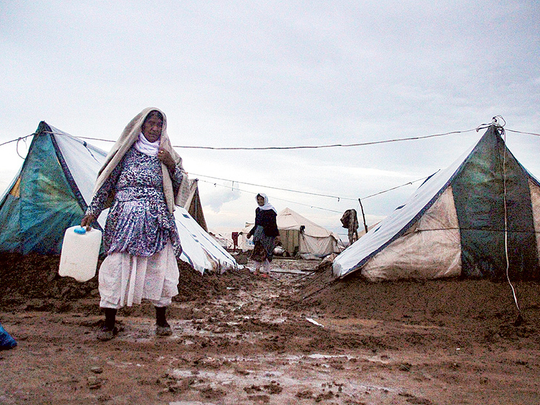
Dubai: The Swedish government, worried by its young citizens joining Daesh in its fight in Syria and Iraq, is looking at ways to put an end to such a trend, the Swedish foreign minister said.
Speaking to Gulf News in an interview, Margot Wallstrom, foreign minister of Sweden, said the number of Swedish citizens who have joined Daesh is “problematic”.
“This is something very problematic and this is something we intend to do everything in our power to stop,” she said.
“We will be looking at whether we can strengthen our legislation,” she said.
Asked whether Sweden will follow the steps of other countries that have criminalised joining organisations such as Daesh, she responded, “I can’t give you any details now, but work has been prepared and undertaken at the moment.”
On another front, she added that efforts on opening channels of communication to people to explain to them the challenges and risks of travelling to fight with Daesh are also needed.
“It is also a matter of reaching out to young people who become radicalised also in our country and our peaceful part of the world.”
According to press reports, nearly 90 people from Sweden are among thousands of Daesh fighters, who also include others from several other western and Asian countries, such as the US, UK, Germany, Spain, France, Kazakhstan, Iraq, Iran and Saudi Arabia.
Wallstrom stressed that Sweden would make sure that it does not contribute by sending foreign fighters.
“They are [not only] taking a big risk, but they are also contributing to a conflict and a war that unfortunately takes so many lives and causing so much suffering in this region,” she said.
The United States and its allies began bombing Daesh targets last August in Iraq and Syria.
Commenting on Sweden’s position on eliminating the threat of Daesh and their “barbaric deeds”, Wallstrom explained that the international community’s work has two parallel tracks.
“We have to do everything to relieve the suffering and to assist also with humanitarian assistance. At the same time we have to work for a political solution... at the moment, there is also a military intervention.”
“We see our role, from a Swedish point of view, is something that we know well, and that is to assist with humanitarian help.”
Sweden has contributed with more than one billion Swedish crowns (half a billion dirhams) in total mainly for humanitarian help and through UN bodies on the ground, and received 55,000 refugees from Syria.
“We would do our best to be helpful in the fight against [Daesh]. But the root cause is to be found in the political instability in this part of the world,” she concluded.











